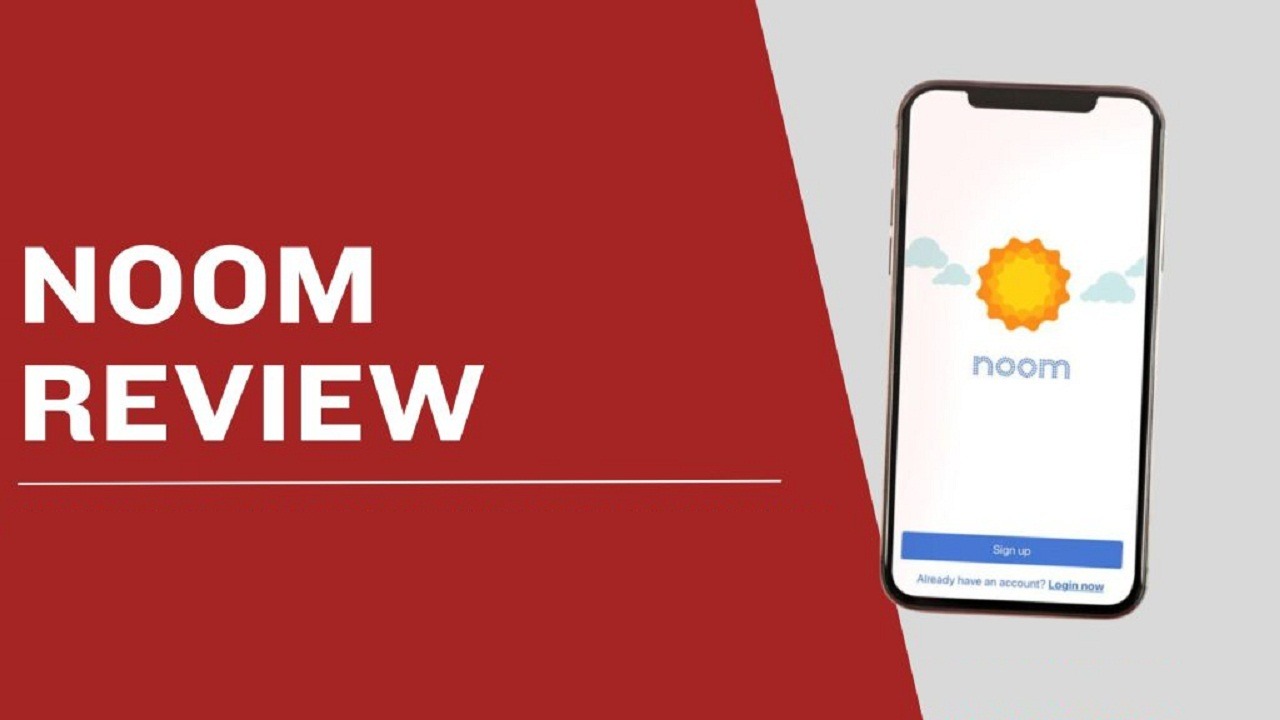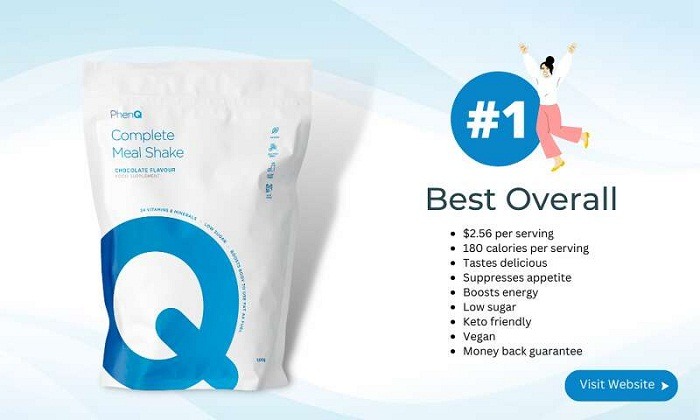Noom Review
Contents
Let’s face it, the world of weight loss is overflowing with promises of quick fixes and effortless transformations. We’ve all been there, following restrictive diets that leave us feeling frustrated and depleted. But what if there was a different approach, one that focused on lasting change and a healthier relationship with food? Enter the Noom diet, a program that carves a unique path by prioritizing behavioral change and long-term weight management.
Related Post: People’s Keto Gummies | A Comprehensive Review for Australian and New Zealand Consumers
Now, the big question: does Noom actually work? This in-depth Noom Review will delve into the core aspects of Noom, exploring its effectiveness, mechanics, and potential benefits and drawbacks. We’ll unpack the science behind the program to help you decide if it’s the right fit for your weight loss journey.
What Is Noom

Unlike traditional diets that simply tell you what to eat, Noom takes a more holistic approach. They acknowledge the complex emotional and behavioral factors that influence our eating habits. Through their user-friendly app, Noom creates a personalized plan that combines calorie tracking, food logging, informative articles, and even coaching support. It’s not just about what you put on your plate, but also about understanding the “why” behind your food choices.
A Traffic Light Approach to Food: Forget restrictive food lists! Noom ditches them in favor of a more approachable system – a traffic light approach. Foods are categorized as green, yellow, or red based on their caloric density and nutritional value. Think of green foods like fruits and vegetables as the go-to options, low in calories and packed with nutrients to keep you feeling full. Yellow foods, including lean protein and whole grains, offer a balance of calories and nutrients. Red foods, typically processed foods high in sugar and unhealthy fats, should be enjoyed sparingly. This system encourages mindful eating by helping you prioritize green and yellow choices without completely demonizing the occasional red treat.
Personalized Coaching and Goal Setting: Unlike static diet plans, Noom tailors itself to you. Upon registering, you’ll complete a series of questionnaires that assess your lifestyle habits, weight loss goals, and past dieting experiences. Based on this information, Noom assigns you a personal coach who provides ongoing support, motivation, and guidance throughout the program. Imagine bite-sized, daily lessons delivered through engaging messages that address psychology, behavior change strategies, and healthy eating principles. These lessons are key to developing self-awareness around your food choices and building habits that stick.
Empowering Through Education: Noom goes beyond just dictating what to eat. The app boasts a vast library of informative articles and quizzes covering a wide range of nutrition and psychology topics related to weight loss. You’ll gain valuable knowledge about healthy eating patterns, portion control, mindful eating practices, and the science behind weight management. This educational component empowers you to make informed food choices based on understanding, not just following rules.
Does Noom Work? Evidence-Based

So, does Noom Diet deliver on its promises? Well, the effectiveness of any weight loss program hinges on its ability to provide sustainable results. Here’s the good news: several studies have shown promising results for Noom users. A 2017 study published in a reputable scientific journal found that participants in a 16-week Noom Diet program lost an average of 9.3% of their body weight, with a significant portion maintaining their weight loss after a year. Another study in 2018 showed that Noom users lost an average of 5.5% of their body weight over 24 weeks. These studies suggest that Noom can be an effective tool for weight loss, particularly when compared to traditional plans that often struggle with long-term adherence.
However, it’s important to remember that weight loss results can vary depending on individual factors like your starting weight, how well you stick to the program and your exercise level. Noom emphasizes the importance of individual needs and goals, encouraging gradual and sustainable weight loss rather than drastic or rapid changes.
Benefits of the Noom Diet Program
Weight loss is a primary focus, but Noom Diet Pkan offers a more holistic approach to health and well-being. By cultivating mindful eating practices and addressing the psychological underpinnings of eating habits, Noom can lead to a more positive relationship with food. Additionally, the program’s emphasis on healthy eating patterns can promote overall nutritional improvement, potentially reducing the risk of chronic diseases like diabetes and heart disease.
Potential Drawbacks and Considerations
While Noom has its strengths, it’s not without its drawbacks. Here’s a closer look at some potential downsides to consider before embarking on your Noom journey:
Cost: Compared to free diet plans or calorie-counting apps, Noom comes with a subscription fee. While the cost may be reasonable for some, it can be a barrier for others. Noom offers a free trial period but ultimately requires a financial commitment.
Coaching Credentials: While coaches offer valuable support, it’s important to understand their qualifications. Noom coaches are not registered dietitians or licensed therapists. They are trained to provide motivational support and guide users through the program, but may not be qualified to address complex dietary needs or underlying psychological issues related to eating.
Focus on Calorie Density: The color-coded system, while helpful for mindful eating, can oversimplify nutritional considerations. For instance, some nutrient-dense foods like nuts and seeds fall into the red category due to their high-calorie content. This might discourage users from incorporating these beneficial foods into their diet.
Potential for Repetition: The daily lessons, though informative, can become repetitive over time, especially for users who progress slowly through the program.
Sustainability Concerns: Noom excels at promoting behavior change, but long-term success depends on individual effort after completing the program. Maintaining healthy habits and resisting temptations requires ongoing commitment and self-management skills.
Who Can Benefit Most from the Noom Diet Plan?

Noom Diet Plan is a flexible program that can cater to a wide range of individuals seeking weight loss and lifestyle changes. Here’s who might find Noom particularly beneficial:
- Individuals seeking a supportive and encouraging weight loss program with personalized coaching.
- Those who want to develop healthy eating habits and improve their relationship with food.
- People who appreciate educational content and a focus on behavioral change.
- Individuals who struggle with emotional eating or cravings.
- Those who prefer a gradual and sustainable approach to weight loss.
Is Noom Diet Right for You? The Final Verdict
Ultimately, deciding if Noom is the right fit for you depends on your individual needs, preferences, and budget. Consider the following factors:
- Your budget: Can you comfortably afford the subscription fee?
- Your learning style: Do you learn best from interactive tools like Noom, or do you prefer traditional resources like books or websites?
- Your support needs: Do you value having a personal coach for motivation and guidance?
- Your long-term goals: Are you looking for a quick fix, or are you committed to sustainable lifestyle changes?
If you’re looking for a supportive, educational, and holistic approach to weight loss, Noom offers a promising option. However, realistic expectations and understanding its limitations are crucial. Remember, Noom is a tool, and your dedication is the driving force behind your success.
In conclusion, Noom can be an effective program for weight loss and behavior change, particularly for those seeking a supportive and educational approach. However, individual needs and budgetary considerations should be factored in before starting the program. By combining Noom with a healthy diet and regular exercise, you can increase your chances of achieving sustainable weight loss and overall health improvements.
This revised version injects a more conversational and friendly tone while maintaining a formal structure.
Most Asked Question on Noom Diet
What is the Noom diet exactly?
The Noom diet is a weight loss program that prioritizes behavioral change and developing healthy eating habits for the long term. It utilizes a personalized approach, combining features like:
- Calorie tracking and food logging: You’ll track your food intake and its caloric content at https://www.myplate.gov/.
- Educational articles: A vast library provides valuable knowledge on nutrition and weight management https://www.noom.com/lose-weight/.
- Coaching support: Personalized coaches offer daily guidance and motivation https://www.noom.com/lose-weight/.
- A color-coded food system: Foods are categorized as green (low-calorie, nutrient-dense), yellow (balanced calories and nutrients), and red (higher calorie, lower nutrient) to promote mindful eating https://www.noom.com/lose-weight/.
What kind of food do you eat on the Noom Diet?
Noom doesn’t restrict specific foods. Instead, the color-coded system encourages you to prioritize green foods (fruits, vegetables, whole grains) and yellow foods (lean protein) while incorporating the occasional red food (processed foods) in moderation. This approach fosters a healthy relationship with food and avoids feelings of deprivation.
What are the disadvantages of the Noom diet?
Here are some potential downsides of the Noom diet:
- Cost: Noom requires a subscription fee, which might not be feasible for everyone.
- Coach qualifications: Noom coaches aren’t registered dietitians or therapists, and may not address complex dietary needs.
- Calorie density focus: While helpful, the color-coded system might oversimplify nutrition, potentially discouraging the inclusion of some nutrient-dense but calorie-dense foods like nuts and seeds.
- Repetition: Daily lessons, though informative, could become repetitive for users progressing slowly through the program.
- Sustainability: Long-term success hinges on your commitment to healthy habits after completing Noom.
How much does Noom cost per month?
The exact cost of Noom varies depending on the subscription plan you choose. They offer different subscription lengths, with generally lower per-month costs for longer commitments. It’s best to check their website for current pricing details.
Is Noom 100% free? / Is the Noom diet app free?
No, Noom isn’t entirely free. They offer a free trial period but ultimately require a paid subscription to access the full program.
Which is the best free weight loss app?
Unfortunately, there’s no single “best” free weight loss app. Several free apps offer calorie tracking, exercise routines, and motivational features. However, Noom’s personalized coaching and behavioral change focus distinguish it from many free options.
What is the minimum age for Noom?
Noom doesn’t publicly disclose a minimum age requirement. It’s advisable to consult with a pediatrician before embarking on any weight loss program if you’re under 18.
Why is the Noom Diet so popular?
Noom’s popularity stems from its holistic approach that addresses both psychology and nutrition. The personalized coaching, educational content, and focus on behavior change resonate with users seeking a sustainable approach to weight loss.
Is there a free plan to lose weight?
There are many free resources available online and in libraries that offer information on healthy eating and weight loss strategies. However, these resources lack the personalized coaching and interactive elements of Noom.
What is the best weight loss program?
The “best” weight loss program is the one that works best for you and fits your individual needs, preferences, and budget. Noom offers a unique approach compared to traditional diets, but it’s not necessarily the best fit for everyone.
What is the average weight loss in Noom Diet?
Studies suggest Noom users can lose an average of 5-9% of their body weight. However, weight loss results vary depending on individual factors like starting weight, diet adherence, and exercise level.
Is the Noom diet successful?
Noom can be successful for weight loss, particularly when compared to traditional diets. The key lies in adherence to the program and developing sustainable healthy habits.
Who owns the Noom Diet App?
Noom is owned by Seth Farbman (CEO) and Artem Petakov (CTO), who co-founded the company in 2008. They envisioned a program that addressed the root causes of unhealthy eating habits and fostered sustainable weight management, a stark contrast to the quick-fix diet culture prevalent at the time. Their innovative approach has propelled Noom to become a leading force in the weight loss industry.
References
- Noom Official Website: https://www.noom.com/
- Effectiveness of a smartphone application for weight loss compared with usual care in overweight primary care patients: a randomized, controlled trial” by Chen, J. et al.: (Abstract available): https://pubmed.ncbi.nlm.nih.gov/35969439/
- Behavioral Weight Loss Interventions for Adults with Obesity: A Randomized Clinical Trial” by Thomas, J. et al.: (Abstract available): https://www.ncbi.nlm.nih.gov/pmc/articles/PMC8785263/
- “Noom Coach: A Case Study of an App-Based Behavior Change Intervention for Weight Loss” by Carter, M. et al.: This case study provides an in-depth look at the Noom Coach app and its effectiveness in helping users achieve weight loss goals.
- “A Mobile App for the Self-Management of Type 2 Diabetes: A Randomized Controlled Trial” by Duncan, M. et al.: This study evaluates the effectiveness of a mobile app, including behavior change techniques similar to those used in Noom, for managing type 2 diabetes.

